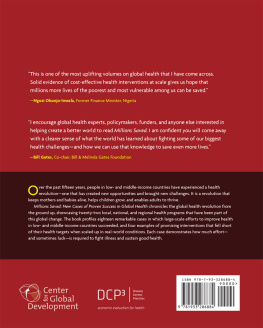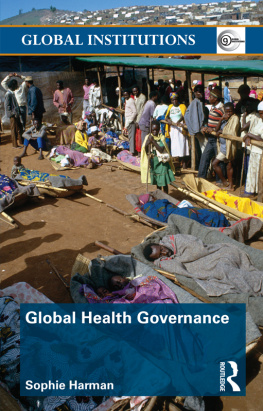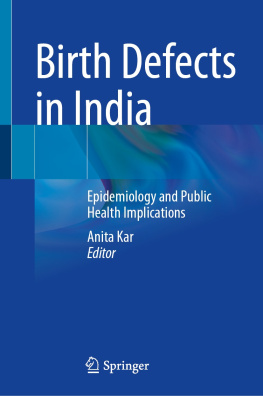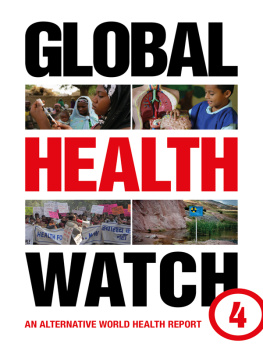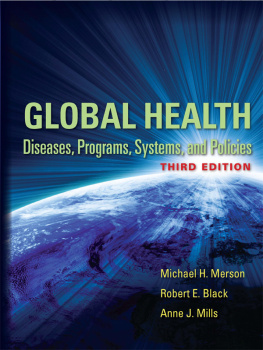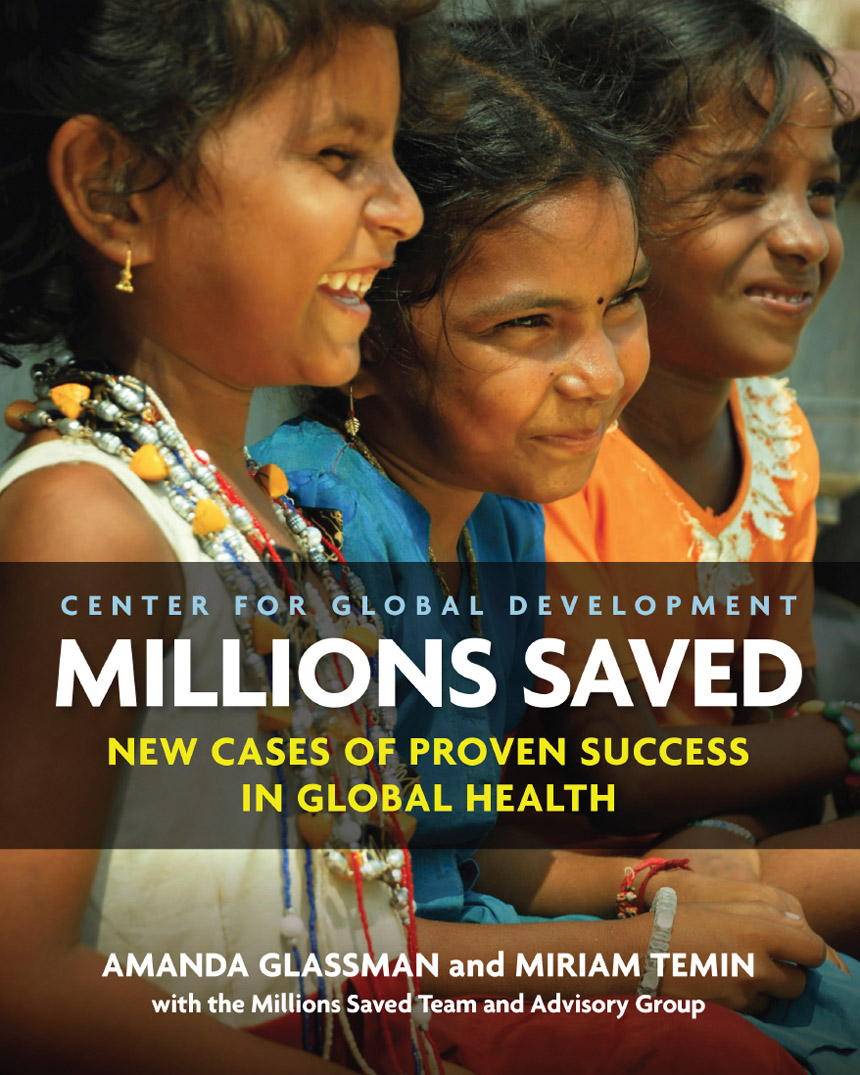
Praise for Millions Saved: New Cases of Proven Success in Global Health
This is one of the most uplifting volumes on global health that I have come across. Solid evidence of cost-effective health interventions at scale gives us hope that millions more lives of the poorest and most vulnerable among us can be saved.
Ngozi Okonjo-Iweala,Former Finance Minister, Nigeria
I encourage global health experts, policymakers, funders, and anyone else interested in helping create a better world to read Millions Saved. I am confident you will come away with a clearer sense of what the world has learned about fighting some of our biggest health challengesand how we can use that knowledge to save even more lives.
Bill Gates,Co-chair, Bill & Melinda Gates Foundation
This book serves as both an inspiration and a practical toolit reminds us that our work is constantly evolving and that our investments yield tangible change. These stories are proof that we are making a difference.
Jimmy Kolker,Assistant Secretary for Global Affairs, United States Department of Health and Human Services
As we look forward, and begin the work toward achieving the Sustainable Development Goals, the chronicles of global health presented in this and previous editions of Millions Saved provide us with documented evidence on what works and does not work in global public health. The studies from Latin America showcase that targeted interventions addressing the needs of vulnerable and marginal populations can yield enormous dividends in health and in social and economic development.
Carissa Etienne,Director, Pan American Health Organization
Positive deviance is usually thought of as finding the successful examples in a community, learning what they do best, and then scaling up those behaviors. This book is about global positive deviance. The authors have found examples of exceptional success in global health that serve as lessons for all of us working in the field.
Stefano Bertozzi,Dean, University of California, Berkeley, School of Public Health
This is an important and impressive volume. I applaud many of its features, including its range of major categories of interventions for improving health, its learnings from programs that disappointed at scale, and its incorporation of costs in the discussion about program effectiveness and impact. Importantly, the book draws conclusions about common features and key lessons, rather than only offering a compilation of interesting case studies, which is essential for the volume to be effective.
Jere Behrman,Professor of Economics, University of Pennsylvania

Copyright 2016
CENTER FOR GLOBAL DEVELOPMENT
2055 L St. NW
Washington DC 20036
www.cgdev.org
All rights reserved. No part of this publication may be reproduced or transmitted in any form or by any means without permission in writing from the Center for Global Development.
9 8 7 6 5 4 3 2 1
Library of Congress Cataloging-in-Publication data
Glassman, Amana L.
Millions Served: new cases of proven success in global health / Amanda Glassman, Miriam Temin
p. cm.
Includes bibliographic references and index.
ISBN: 978-1-933286-93-8
LCCN: 2016936346
Dedicated to public health workers around the
world who save lives every day.
Table of Contents
Guide
Contents
by Bill Gates
An old scourge, meningitis A, meets a new vaccine, MenAfriVac. Two hundred seventeen million immunizations later, African countries achieve historic reductions in incidence and deaths.
The government distributes lifesaving treatment at zero cost to Batswana living with HIV, and AIDS deaths plummet by more than 70 percent in less than a decade.
Chinas government extends the reach of hepatitis B vaccination nationwide and blocks a looming liver cancer epidemic.
Zambia goes all in with proven tools to fight malaria-spreading mosquitoes, helping more children reach their fifth birthday.
Concrete flooring brings concrete health gains for Mexican children in poor households, and even their mothers become measurably happier.
School-based treatment gives millions of Kenyan children a worm-free childhood, with lifelong benefits for their health and livelihoods.
Relying on proven tactics, Haiti goes school to school and house to house to vaccinate kids and halts a polio outbreak.
In Bangladesh, a package of proven interventions falls short on effectiveness at scale and fails to move the needle on under-five deaths.
Thai citizens get universal access to essential health services at zero cost and reap major benefits as babies become healthier, workers increase their productivity, and households reduce financial risk.
Through a structured system of incentive payments, Argentinas national government tangos with provincial authorities to take on a spiraling health crisis for newborns.
Elevating high-quality primary care from the sidelines to center stage, Brazil cuts deaths from heart disease and reduces unnecessary hospital visits.
In Rwanda, paying providers for results gets results: increased use of health services and growth and weight gain for children.
Gujarat takes on maternal and neonatal mortality with incentives for facility-based delivery but without addressing service quality and demand, and increased use fails to improve health.
Cash transfers give a helping hand to caretakers of ultra-poor and vulnerable Kenyan children, generating major reductions in risky behaviors and better mental health.
Conditional cash transfers help Punjabi girls stay in school, empowering them to marry later and avoid early pregnanciesgood news for their reproductive health.
In post-apartheid South Africa, cash grants help level the playing field for children living in poverty, improving their nutrition while reducing early pregnancy and risky behaviors.
In Honduras, cash transfers help families access health services but dont improve health.
Thailand cuts smoking by a quarter after taking on transnational tobacco with tax hikes, health warnings, and new laws and restrictions.
Complying with a new law and stepped-up enforcement, Vietnams motorcyclists don helmets and prevent traumatic brain injuries.
Triggered by a call to action, Indonesian communities band together to eliminate open defecation and reduce diarrheal disease.
In India, targeted community outreach and health services for the most at-risk affected populations help stem the spread of HIV.
A handwashing campaign in Peru gets mothers to lather up but fails to clean up the burden of fecally transmitted diseases.
The world is healthier than ever. For the first time in human history, Africa recorded no polio cases at all in 2015. Deaths from malaria, AIDS, tuberculosis, pneumococcal disease, and meningitis are down significantly. And child mortality has been cut in half in the last 25 years.
Whats enabled these global health successes? At the highest level, a combination of scientific advances; innovative financial interventions designed to address market failures; and effective collaboration among developing countries, the private sector, and government and philanthropic funders.

